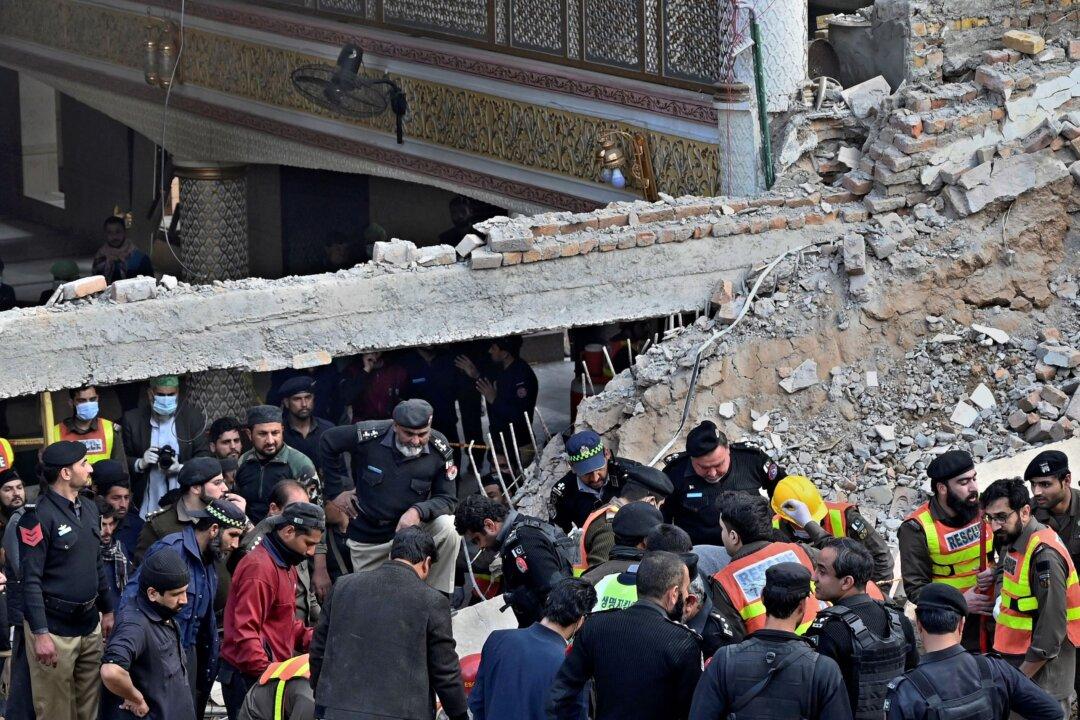The Tehreek-e-Taliban Pakistan (TTP), also known as the Pakistani Taliban, denied any involvement in the Jan. 30 suicide bombing at a mosque in Peshawar, Pakistan, which killed at least 95 people.
This came after TTP commander Sarbakaf Mohmand claimed responsibility for the mosque bombing in a Twitter post on Monday. Mohmand said that it was a revenge attack for the death of the group’s top commander, Omar Khalid Khorasani, in Afghanistan last year.





